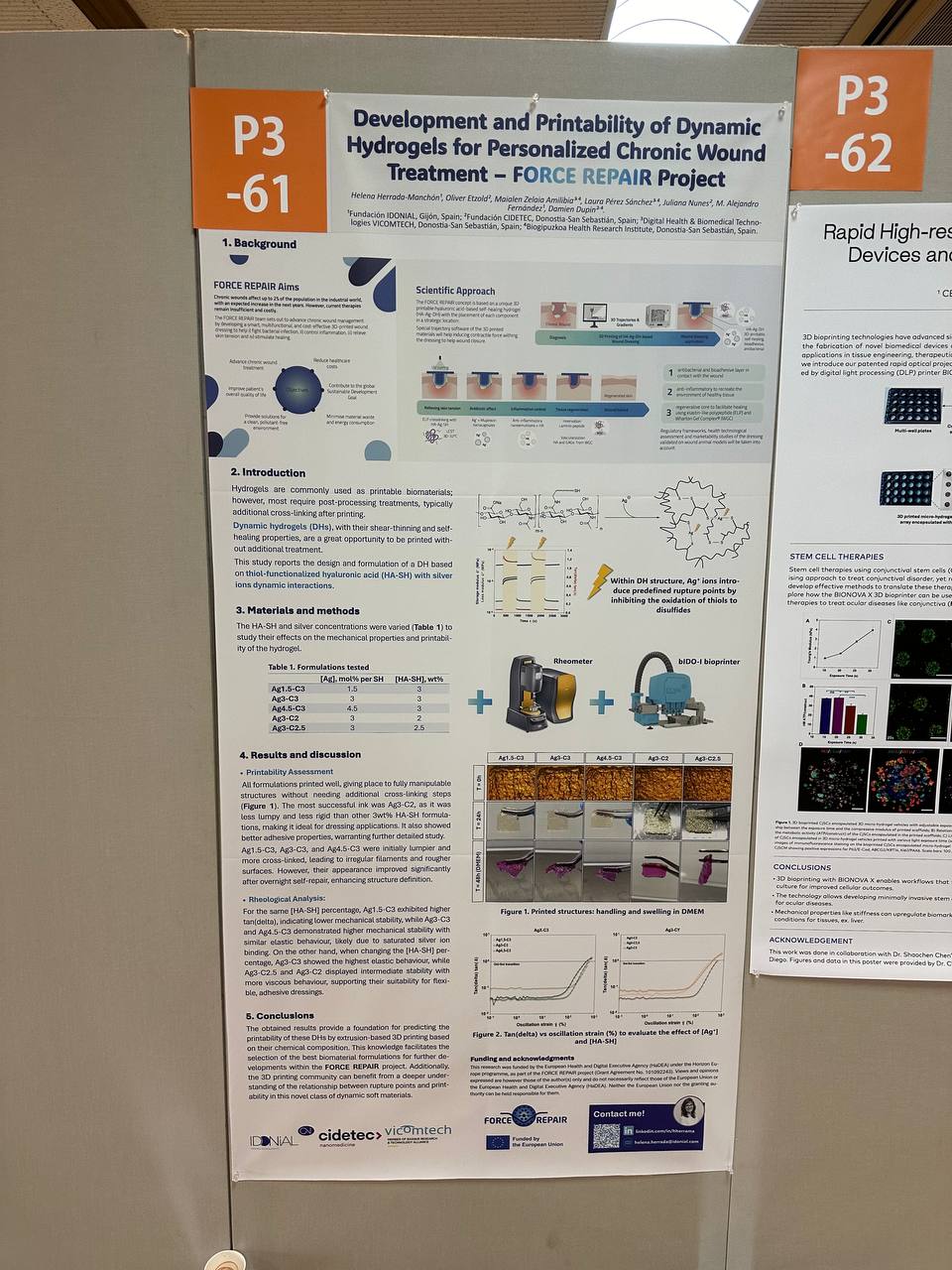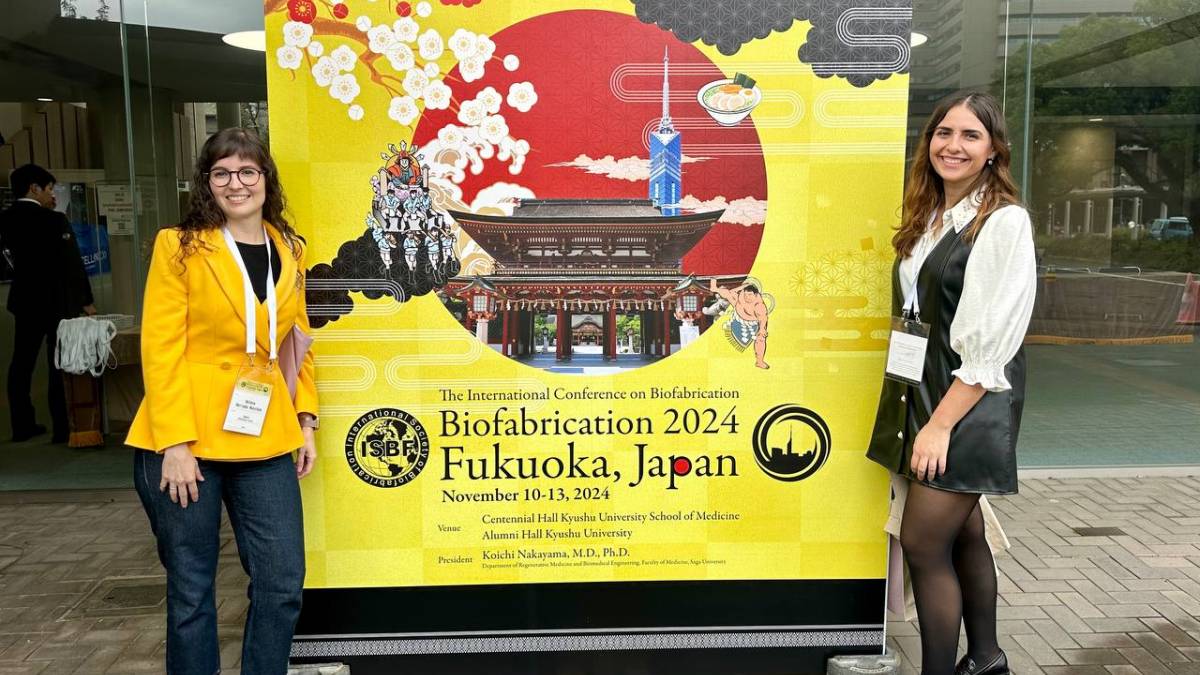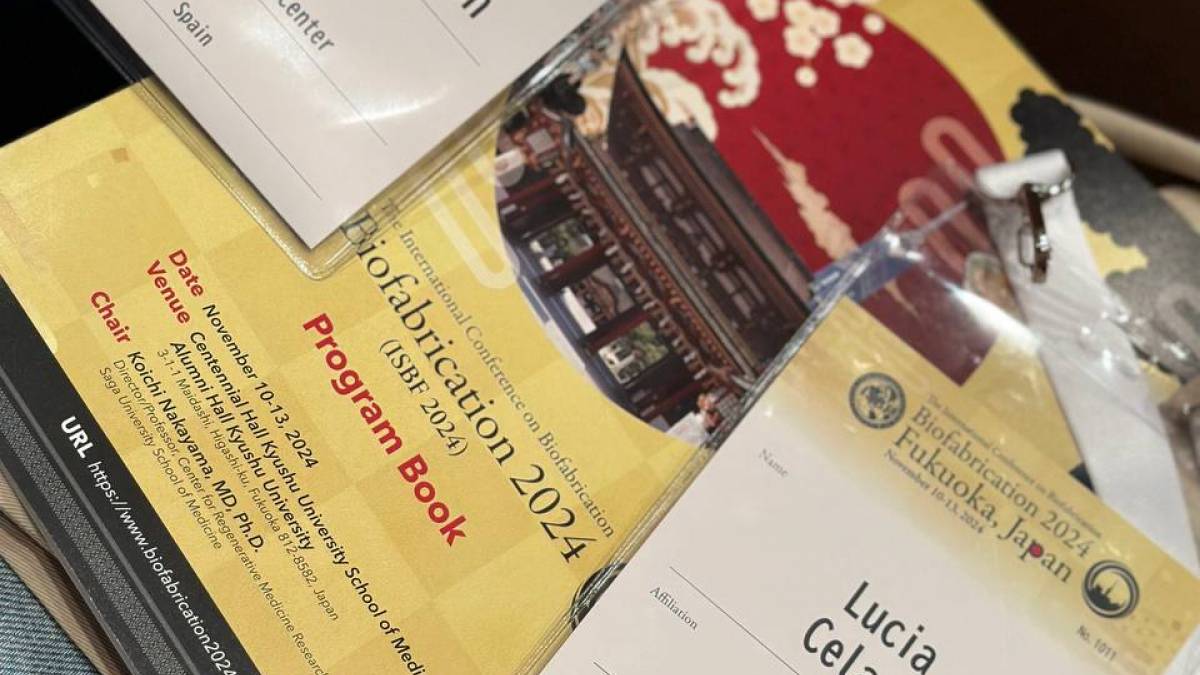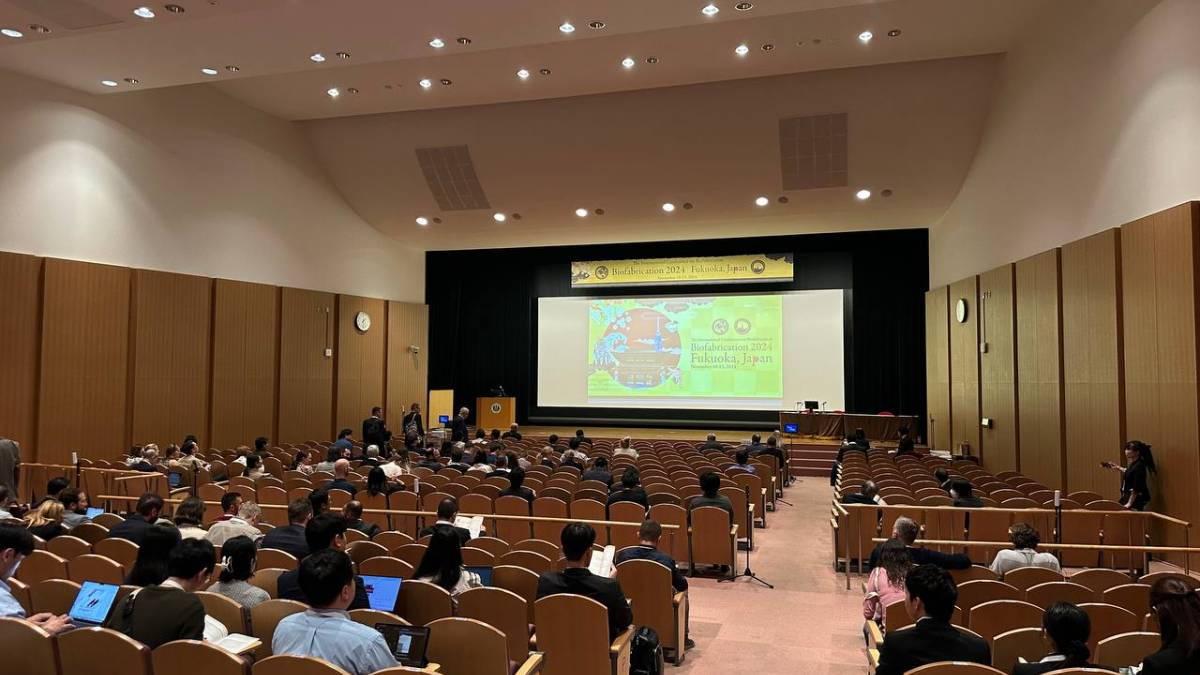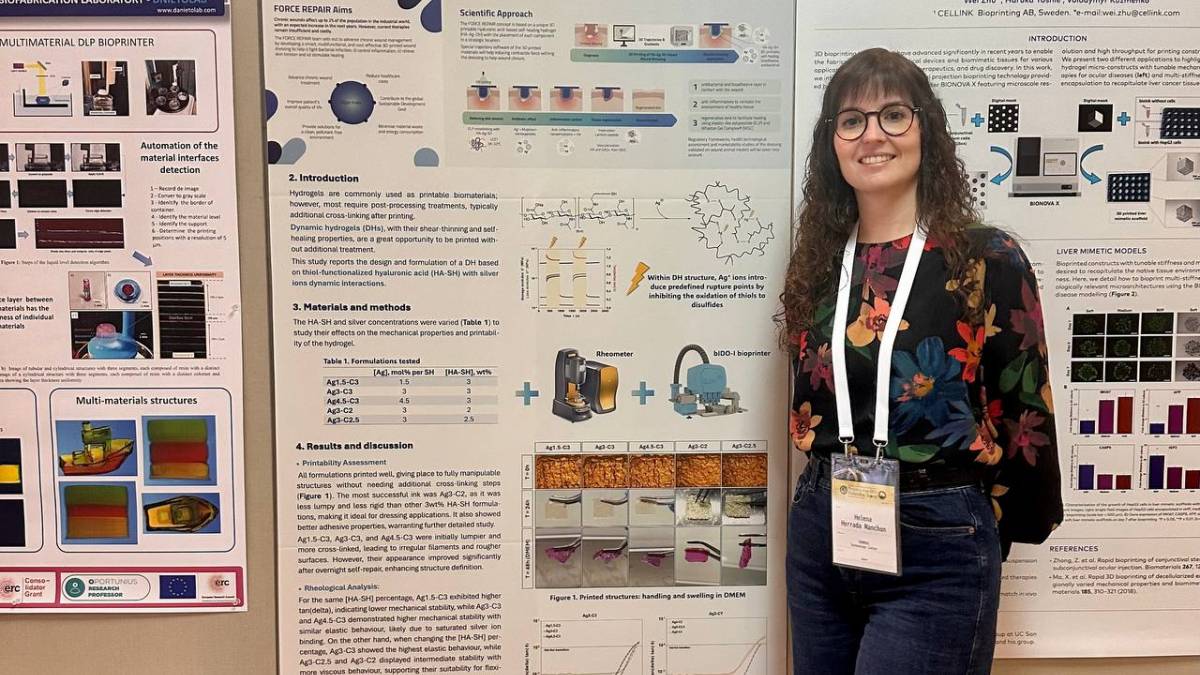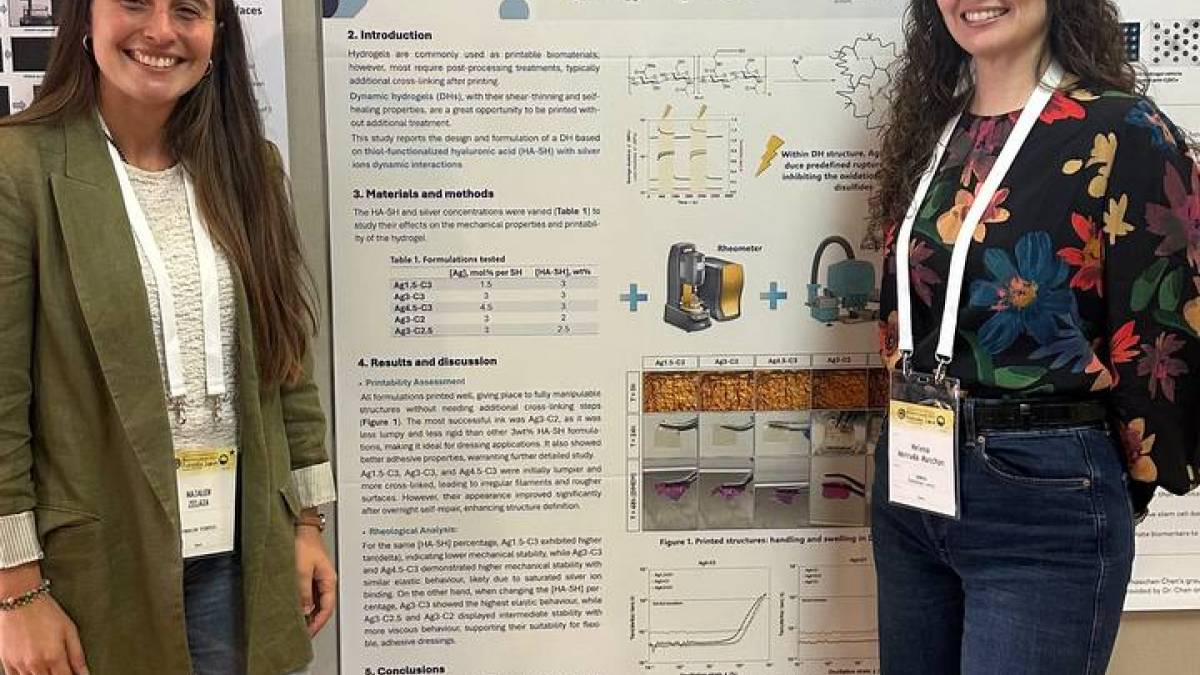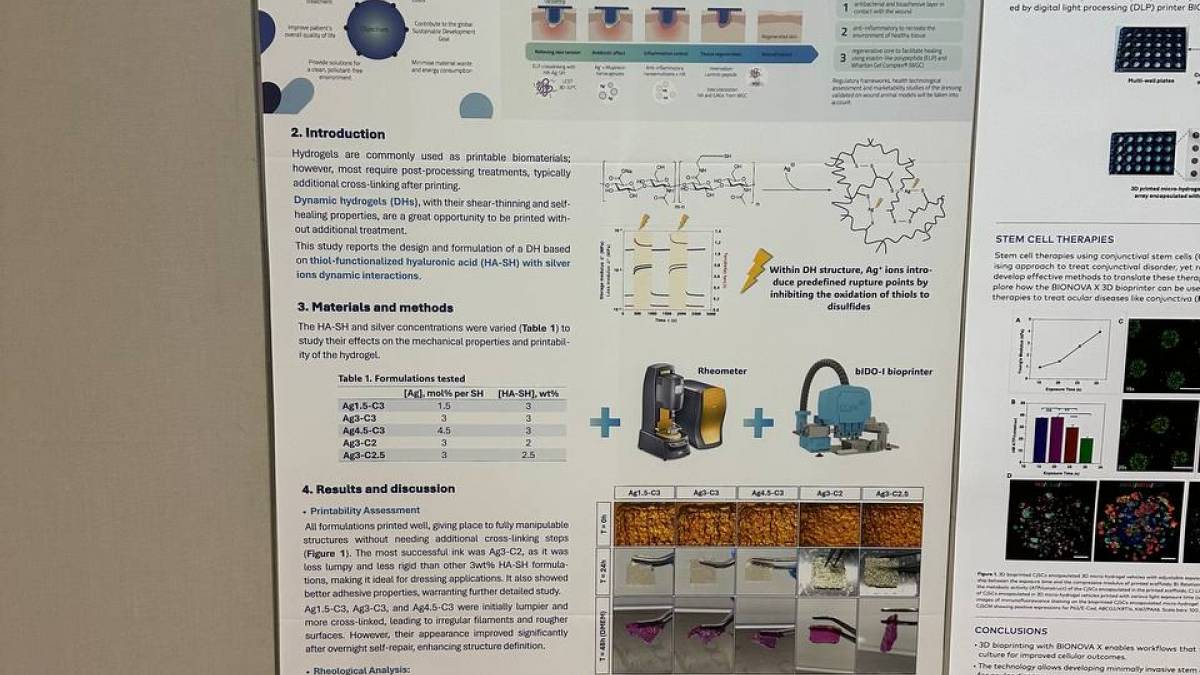FORCE REPAIR at the International Conference on Biofabrication in Fukuoka, Japan
Each year, the International Society for Biofabrication holds the International Conference on Biofabrication. This year, the annual International Conference on Biofabrication took place in Fukuoka, Japan from November 10-13, 2024. Over 500 participants from more than 20 countries came together to share their research on biofabrication and bioprinting during presentations and at the exhibition. The conference aimed to highlight the importance of results that can be applied in the medical field, the development of new technologies, foster knowledge sharing and facilitate connections that can boost the development of innovative solutions for pandemic response and functional personalised medicine.
Helena Herrada Manchón and Lucía Celada Crespo from IDONIAL Centro Tecnológico attended the conference and represented the FORCE REPAIR project. They presented their poster titled "𝘋𝘦𝘷𝘦𝘭𝘰𝘱𝘮𝘦𝘯𝘵 𝘢𝘯𝘥 𝘱𝘳𝘪𝘯𝘵𝘢𝘣𝘪𝘭𝘪𝘵𝘺 𝘰𝘧 𝘥𝘺𝘯𝘢𝘮𝘪𝘤 𝘩𝘺𝘥𝘳𝘰𝘨𝘦𝘭𝘴 𝘧𝘰𝘳 𝘱𝘦𝘳𝘴𝘰𝘯𝘢𝘭𝘪𝘴𝘦𝘥 𝘤𝘩𝘳𝘰𝘯𝘪𝘤 𝘸𝘰𝘶𝘯𝘥 𝘵𝘳𝘦𝘢𝘵𝘮𝘦𝘯𝘵". This was a great opportunity to showcase our preliminary results from Task 1.6 (under Work Package 1 - Production of the bio-inks and carry out preliminary printability tests) on the printability of our dynamic hydrogels and get some valuable feedback from the community.
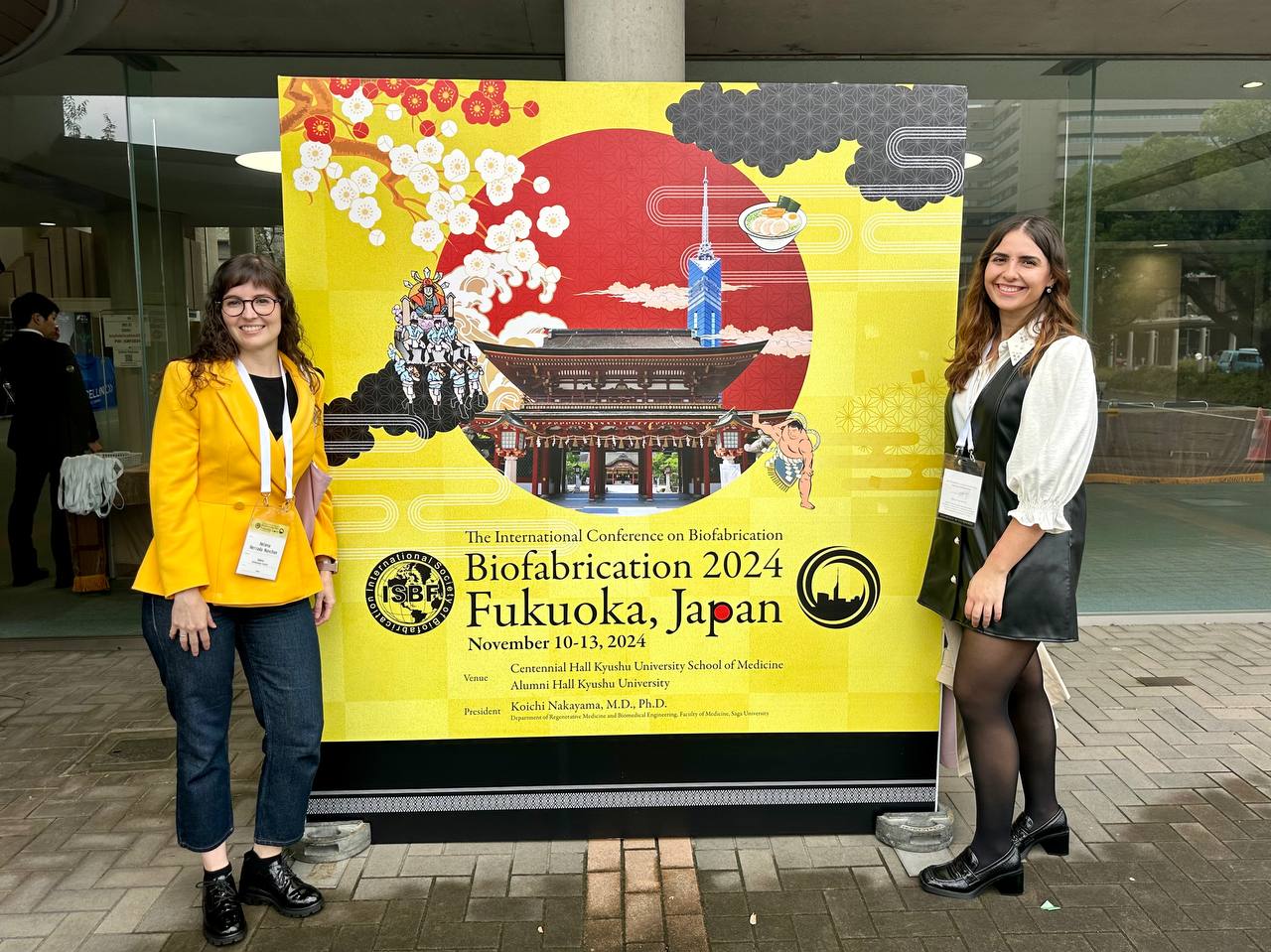
The conference and the presentation were a great opportunity to highlight consortia's dedication to advancing personalised solutions in chronic wound care.
Learn more about the conference: www.biofabrication2024.org
Read the abstract here:
BACKGROUND
Current chronic wound management is insufficient and fails to provide reliable skin regeneration. FORCE REPAIR, an EU-funded research project, is developing a multifunctional wound dressing based on hyaluronic acid dynamic hydrogels to create a pro-regenerative environment and ensure mechanical stability during chronic wound treatment. The project aims to print dressings tailored to patients’ needs using an antibacterial and anti-inflammatory bio-adhesive ink combined with biological actives to boost extracellular matrix proteins.
INTRODUCTION
Hydrogels are commonly used as printable biomaterials; however, most require post-processing treatments, typically additional cross-linking after printing. Dynamic hydrogels (DHs), with their shear-thinning and self-healing properties, offer a great opportunity to be printed without additional treatment. This study reports the design and formulation of a DH based on thiol-functionalized hyaluronic acid (HA-SH) with silver ions dynamic interactions. Within DH structure, silver ions introduce predefined rupture points by inhibiting the oxidation of thiols to disulfides. The HA-SH and silver concentrations were varied to study their effects on the mechanical properties and printability of the hydrogel.
